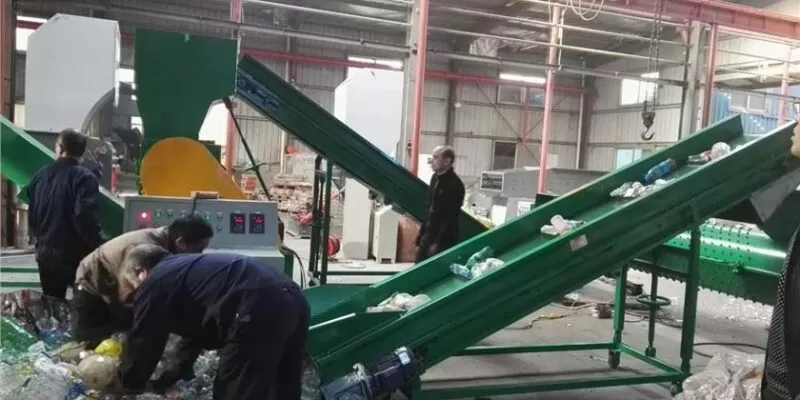Ever wondered how Vietnam, a nation bursting with natural beauty, is grappling with the scourge of environmental pollution? It’s a pressing issue that affects the lives of millions. Despite the challenges, Vietnam has made remarkable strides in plastic recycling. Let’s dive into the heart of this matter and see how the country is turning the tide.

Vietnam faces severe environmental pollution, but it’s not all doom and gloom. The country is making significant headway in plastic recycling, showcasing impressive achievements that could serve as a model for others.
The pollution situation is dire, but the resilience and innovation in tackling plastic waste are truly inspiring. So, let’s break it down step by step.
How Severe is Vietnam’s Environmental Pollution?
Vietnam is facing a pollution crisis. The air quality in cities like Hanoi and Ho Chi Minh City often ranks among the worst globally. Industrial activities, vehicular emissions, and construction dust contribute to this problem. Additionally, water pollution from industrial waste and agricultural runoff poses a severe threat to public health and biodiversity.
What are the Main Sources of Pollution?
The major culprits behind Vietnam’s pollution woes include rapid industrialization, urbanization, and inadequate waste management systems. Factories discharge untreated waste into rivers, while urban areas struggle with the sheer volume of solid waste. Agricultural practices also play a part, with pesticides and fertilizers contaminating water bodies.
How is Plastic Waste Impacting Vietnam?
Plastic waste is a significant environmental issue in Vietnam. The country is one of the top consumers of plastic in Southeast Asia, with single-use plastics being a common sight. This leads to clogged waterways, littered beaches, and harmed marine life. The lack of effective waste management exacerbates the problem, with much of the plastic waste ending up in landfills or the ocean.
What Steps is Vietnam Taking to Combat Plastic Pollution?
Vietnam has implemented several measures to tackle plastic pollution. These include banning single-use plastics in certain areas, promoting the use of biodegradable alternatives, and enhancing public awareness about the importance of recycling. Additionally, the government has been working on improving waste collection and recycling infrastructure.
How is the Plastic Recycling Industry Developing?
The plastic recycling industry in Vietnam is growing steadily. Local businesses and international partnerships are driving innovations in recycling technologies. Companies are investing in state-of-the-art facilities to process plastic waste efficiently. This industry not only helps reduce pollution but also creates job opportunities and boosts the economy.
What are Some Notable Achievements in Plastic Recycling?
Vietnam has achieved several milestones in plastic recycling. For instance, the country has successfully recycled significant amounts of plastic waste into new products like construction materials and consumer goods. These initiatives have not only reduced the volume of waste but also promoted a circular economy. Public-private partnerships have been crucial in achieving these results.
How is Technology Enhancing Recycling Efforts?
Advancements in technology have played a vital role in improving plastic recycling in Vietnam. Modern recycling plants use advanced sorting and processing technologies to handle various types of plastic waste. Innovations such as chemical recycling are also being explored, which can convert plastic waste back into its original monomers, making the recycling process more efficient and sustainable.
What Role Does Public Awareness Play?
Public awareness is critical to the success of recycling initiatives. In Vietnam, various campaigns and educational programs have been launched to inform citizens about the importance of recycling and how they can contribute. Schools, communities, and businesses are increasingly participating in recycling efforts, fostering a culture of sustainability.
What Challenges Still Exist?
Despite the progress, challenges remain. The infrastructure for waste collection and recycling needs further improvement. There’s also a need for stricter enforcement of environmental regulations. Additionally, changing public behavior towards waste disposal and recycling requires continuous effort. Addressing these challenges is crucial for sustaining the momentum in the fight against plastic pollution.
How Can Other Countries Learn from Vietnam?
Vietnam’s approach to tackling plastic pollution offers valuable lessons for other countries. The combination of government policies, technological advancements, and public participation has proven effective. By adopting similar strategies, other nations can enhance their recycling efforts and contribute to global sustainability goals.
Conclusion
Vietnam’s journey from battling severe pollution to achieving significant milestones in plastic recycling is inspiring. It highlights the importance of innovation, collaboration, and public awareness in addressing environmental challenges. As we continue to strive for a cleaner planet, Vietnam’s experience serves as a beacon of hope and a guide for effective waste management practices.
That’s it! Now you know how Vietnam is turning the tide on plastic pollution. Let’s keep the momentum going and strive for a sustainable future.
